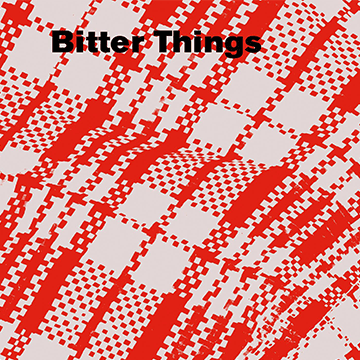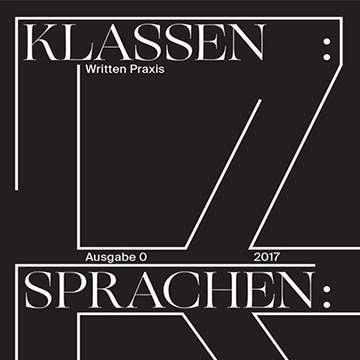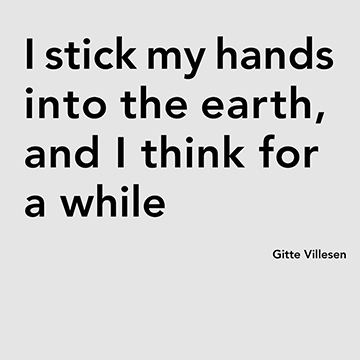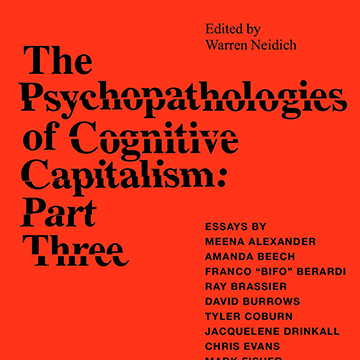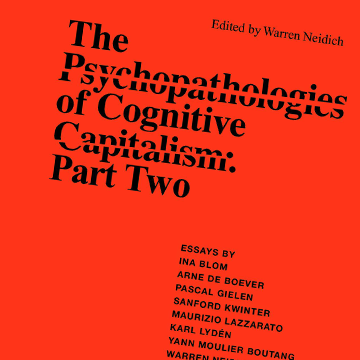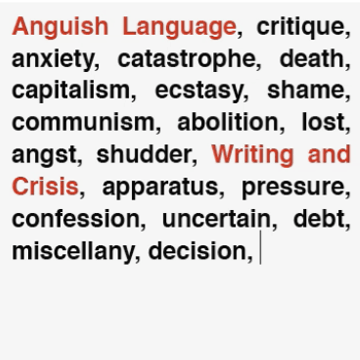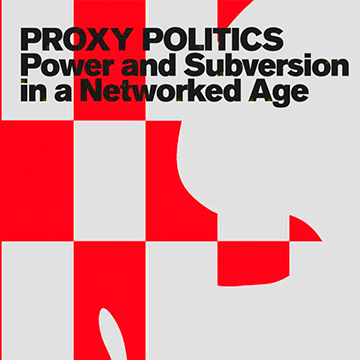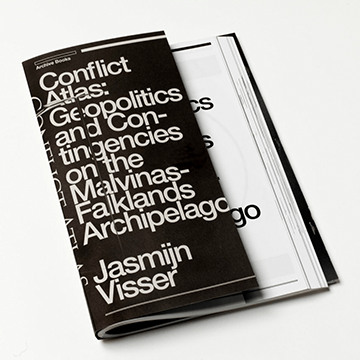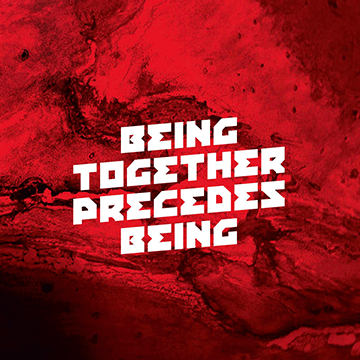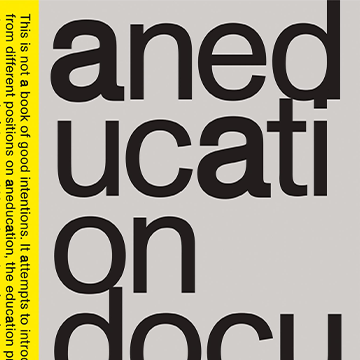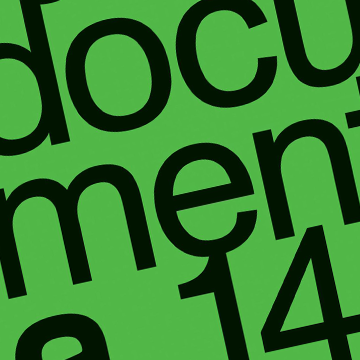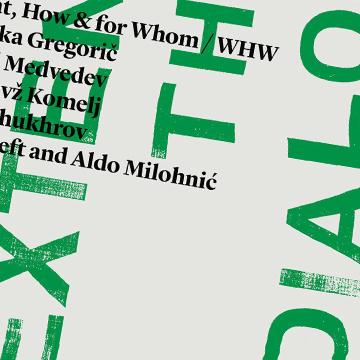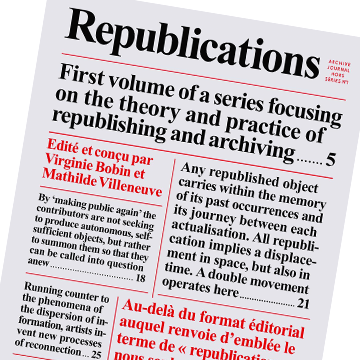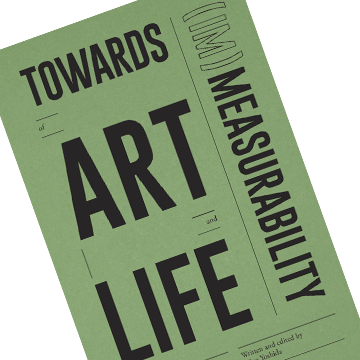Labor migration is worldwide creating new models of the transnational family, which despite geographical distances strives to maintain contact between the separated family members. But, how is the relationship between parents and children to be redefined whenever gifts and material support take the place of shared experience? When physical closeness has to take second place to communication programs like Skype and WhatsApp? How does this changing family landscape impact children and their parents? Bitter Things retraces positions on this topic from the 1960s right up to present day perspectives.
Category: Titles
Klassensprachen
Instead of passing off art as a model for a better politics, we wish to test it for the signatures, the markers and forms of these deeply antagonistic relations of which art itself is a material part: we are concerned with art as a class language, as well as with class languages in art; with art’s room for maneuver as well as with its limits and restrictions, curatorially, in writing and debate.
I stick my hands into the earth, and I think for a while
Travelling through the forest in Mexico, I reread Ursula Le Guin’s The Word for World Is Forest, which is set on a planet covered with forest. The inhabitants of the planet have trained themselves to master their dreams. For them, dream-time and world-time are equally real. At some point, a group of earthlings arrives, intending to colonise the planet. To the locals, the invaders’ dreams seem like those of a 3-year-old with no control and no awareness. Also, the earthlings use hallucinogens that send their dreams out of control.
Glossary of Cognitive Activism
This glossary is meant to accompany the three-volume publication The Psychopathologies of Cognitive Capitalism Part 1, 2 and 3. It reflects the concerns contained in those volumes. It marks the beginning of a long-term process of creating a dictionary of terms with which to understand and eventually destabilize the complex ways through which a future Neural Capitalism will work in creating contemporary forms of neural subsumption.
The Psychopathologies of Cognitive Capitalism. Part Three
This third volume of The Psychopathologies of Cognitive Capitalism emerges from deliberations that took place during two different symposia. The first was a collaboration between Warren Neidich and Mark Fisher at the Department of Visual Culture at Goldsmiths College, titled The Psychopathologies of Cognitive Capitalism Part Three: The Cognitive Turn, and the second was an event organized in conjunction with the Goethe-Institut Los Angeles, Noise and the Possibility of a Future.
The Psychopathologies of Cognitive Capitalism. Part Two
The Psychopathologies of Cognitive Capitalism: Part Two is the second volume in a series which maps out the complex terrain of cognitive capitalism as an ontogeny in which its earlier phase has transitioned into a later phase that we are now beginning to experience. This volume collects together papers from a conference of the same name held at the Institute of Cultural Inquiry, Berlin, in the spring of 2013. The book contains three sections of which the first is titled Cognitive Capitalism: The Early Phase, the second The Psychopathologies of Cognitive Capitalism and its Responses, and the last The Cognitive Turn in Cognitive Capitalism.
The Psychopathologies of Cognitive Capitalism. Part One
This book collects the papers that were presented at "The Psychopathologies of Cognitive Capitalism: Part One" conference in Los Angeles in November 2012. The conference brought together an international array of philosophers, critical theorists, media theorists, art historians, architects, and artists to discuss the state of the mind and the brain under the conditions of cognitive capitalism, in which they have become the new focus of laboring. How have emancipatory politics, art and architecture, and education been refined by semiocapitalism? What might be the lasting, material ramifications of semiocapitalism on the mind and brain?
Anguish Language: Writing and Crisis
Edited by John Cunningham, Anthony Iles, Mira Mattar and Marina Vishmidt.
Anguish Language approaches language as a core aspect of the present social crisis. The project engages in solidarity with forms of self-publishing, poetry, criticism, experimental writing and declamation that have arisen in the wake of the 2007-8 financial crisis, considering language among and through the social strugge responding to its consequences.
Proxy Politics
This publication looks at proxy-politics on both a micro and a macro level, exploring proxies as objects, as well as networks as objects. What is the relation between the molecular and the planetary? How to fathom the computational regime?
Yet, whilst being a manifestation of the networked age, thinking like a proxy offers loopholes and strategies for survival.
Conflict Atlas
Conflict Atlas looks at history through the perspective of the Falklands Islands/Islas Malvinas. Global events are mirrored to local proceedings on the archipelago. Through this method it explores trade routes, colonial enterprises, patterns of migration, questions of identity, strategies in warfare and the role of the climate in social issues. Conflict Atlas comprises texts, maps and archival materials. Starting from the case of the Falklands/Malvinas it aims to create a field of tensions by the multiplication and stratification of geographical sites, historical times and subjective views.
Being Together Precedes Being
Being Together Precedes Being offers a text book for the project “The Kids Want Communism,” which was initiated towards the 99th anniversary of the Soviet Revolution of October 1917 as a series of exhibitions, symposiums and conferences, screening programs, publications and a summer camp. In this textbook, communism does not merely describe an “us versus them” relation, but also offers that we are becoming the future. This trajectory of communism runs parallel to us at every single moment and its guiding principle is that being together precedes being.
Aneducation • documenta 14
Forty-eight entries are organized alphabetically as a lexicon, each written by various members of the aneducation team and documenta 14 Chorus, as well as curators, artists, and educators who contributed to the program. The publication’s many points of departure present just as many desires for other sites of learning. Cross references among the entries show the deep relationships that existed—and continue to deepen—between the methods, programs, and locations of aneducation.
Eine Erfahrung • documenta 14
Forty-eight entries are organized alphabetically as a lexicon, each written by various members of the aneducation team and documenta 14 Chorus, as well as curators, artists, and educators who contributed to the program. The publication’s many points of departure present just as many desires for other sites of learning. Cross references among the entries show the deep relationships that existed—and continue to deepen—between the methods, programs, and locations of aneducation.
Extending the Dialogue
The authors whose writings appear in this book come from twelve different countries and represent a range of disciplines and interests: they are art historians, philosophers, cultural theorists and activists, critics, curators, and poets, with most of them falling into at least two or three of these categories. All have made important contributions to contemporary art and cultural production, art history writing, and critical thought within, and sometimes far beyond, the region once known, problematically, as ‘Eastern Europe.’
Republications
Republications is the first volume of Archive Journal’s hors-séries. Each issue of the series is commissioned to authors whose research is close to the editorial line of the journal. For the inaugural issue Archive’s editors have invited French curators and art critics Virginie Bobin and Mathilde Villeneuve. Taking as a starting point the notion of ‘republication’, the contents of this publication have been compiled through a collective process over the course of multiple editorial meetings in Berlin, Aubervilliers and Paris between 2011 and 2012. The texts assembled in this volume have been written in English or in French.
Towards (Im)Measurability of Art and Life
Towards (Im)Measurability of Art and Life gathers together various stories, practices, and essays about measurement that embrace paradox, contradiction, and humour. The book creates and introduces incidents of ideas, conceptual methods, acts, and processes of measurement that dwell in a conceptual transition between science (technology) and everyday life. When measurement is viewed as a practice, it is important to recall that data processing, especially visualisation, actually necessitates many aesthetic decisions.
